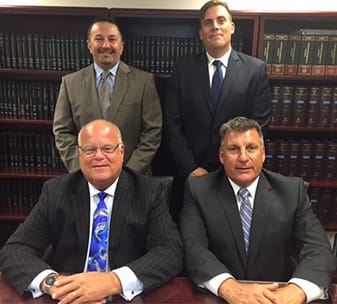Sorting Out Secured and Unsecured Debt in New York Chapter 7 and Chapter 13 Bankruptcies
You may know the basic differences between “secured” and “unsecured” debt. Secured debt is attached to some asset like a car or a home. The asset serves as collateral for the money owed, and can be seized by the lender if the loan becomes delinquent. Unsecured debt, on the other hand, is not linked to specific possessions or property, although creditors may try to get the money they’re owed by hiring a bill collectors or a filing a lawsuit. Credit card debt, medical bills and student loans are all examples of unsecured debt.
If you are facing burdensome debt, bankruptcy can help you get your financial life back on track. But, the exact outcome of your bankruptcy case depends to an extent on what kind of debt you have, as well as which type of bankruptcy you choose to file.
Chapter 7 Discharge Versus Chapter 13 Repayment Plan
For consumers, there are generally two types of bankruptcy, Chapter 7 and Chapter 13. Chapter 7 bankruptcy is what most consumers probably picture when they think of bankruptcy. In a Chapter 7 case, most types of debt will be discharged almost immediately, and any assets you have above and beyond certain exemptions allowed by law (typically exemptions are for a home, car, personal effects, etc.) may be forfeited to partially repay creditors.
A Chapter 13 bankruptcy involves the restructuring of your debt by the court and repayment on manageable terms over the life of a three- to five-year plan. At the end of the Chapter 13 plan, if you have met the terms of your plan, most kinds of remaining debt will be discharged.
What happens to a particular debt in Chapter 7 or Chapter 13 cases often depends on whether the debt is secured or unsecured. In Chapter 7 bankruptcy, most unsecured debts are discharged, meaning you will no longer be legally obligated to repay them. There are a few exceptions, however; for example, student loan and tax debts survive a Chapter 7 discharge.
For secured debts in Chapter 7, you have several options. You can give up the property and discharge the debt free and clear. Alternately, you may reaffirm the debt. In other words, you could agree that you will still owe the debt after your bankruptcy case is over. Reaffirmation is a good option if you really need to keep the property securing a debt, but remember, if you fall behind on payments and cannot make up the balance, the creditor may repossess the property securing your debt.
In Chapter 13 bankruptcy, you can keep property subject to a secured debt even if you are behind on your payments when you file, and you will be able to pay off the defaulted payments over the life of your Chapter 13 plan. If you do not wish to keep property tied to a secured debt, you can surrender it to your creditor – but, if the property is worth less than what you still owe on the debt, the difference will be added to your unsecured debt balance. Chapter 13 also gives you the option to “cram down” some secured debts to the actual current value of the property, meaning the amount of debt will be reduced to reflect the replacement value of the property.
In a Chapter 13 case, unsecured debt is part of your repayment plan. As long as you commit all “disposable income” to your repayment plan and unsecured creditors receive at least as much as they would have in a Chapter 7 case, you do not have to fully repay all unsecured debts in Chapter 13. At the end of your Chapter 13 plan, most types of remaining unsecured debt will be fully discharged.
Speak Now To an Experienced Bankruptcy Attorney
Now that you know a little more about how different types of debt are treated in Chapter 7 and Chapter 13, you may be wondering which type of bankruptcy is best for you. The answer depends on many individual factors, and only a qualified bankruptcy attorney can advise you on the correct course of action. With the right help, bankruptcy can help you get your financial life back on course. Talk to a bankruptcy attorney in your area today to learn more.

